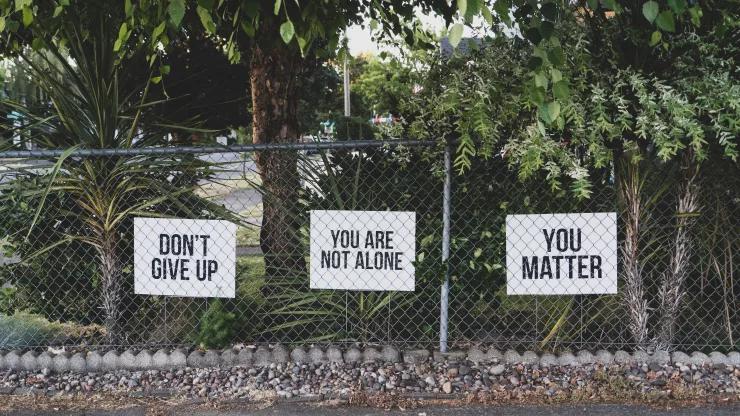Video gaming has been a popular form of entertainment for decades, but it has also been a subject of controversy.
While some people view it as a waste of time and a cause of addiction, others argue that it has numerous benefits, especially in terms of mental health and well-being.
In this article, we will delve into the impact of video gaming on happiness and explore its positive effects on our brains, emotions, and social lives.
Jump to Section
How Video Gaming Affects Our Brain and Emotions
Video gaming can have a profound impact on our brains and emotions. Studies have shown that playing video games can increase the production of dopamine, a neurotransmitter associated with pleasure and motivation.
This can lead to feelings of happiness, excitement, and satisfaction.
Moreover, video gaming can improve cognitive function, such as attention, memory, and problem-solving skills.
However, video gaming can also have negative effects on our mental health. Excessive gaming can lead to addiction, which can cause depression, anxiety, and social isolation.
It can also lead to poor sleep quality, which can affect our mood and cognitive function.
Therefore, it is important to find a healthy balance and avoid excessive gaming.
The Positive Effects of Video Gaming on Mental Health
Despite the potential risks, video gaming can have numerous positive effects on our mental health. For example, it can reduce stress and anxiety by providing a distraction from everyday worries and allowing us to relax.
It can also boost self-esteem and confidence by providing a sense of achievement and mastery.
Moreover, video gaming can be a form of therapy for people with mental health conditions, such as depression and post-traumatic stress disorder.
It can provide a safe and controlled environment for them to confront and overcome their fears and challenges.
Some studies have even suggested that video gaming can be as effective as traditional therapies in treating mental health conditions.
Video Gaming as a Tool for Stress Relief and Relaxation
One of the most well-known benefits of video gaming is its ability to relieve stress and promote relaxation.
Playing video games can provide a temporary escape from the pressures of everyday life and allow us to unwind.
It can also provide a sense of control and empowerment, which can reduce feelings of helplessness and anxiety.
Moreover, video gaming can provide a social outlet for people who may have difficulty socializing in real life. Online gaming communities can provide a sense of belonging and connection, which can improve mental health and well-being.
However, it is important to be aware of the potential risks of online gaming, such as cyberbullying and addiction.
The Social Benefits of Video Gaming
Video gaming can also have numerous social benefits. It can provide a shared activity for friends and family members, which can improve bonding and communication.
It can also provide opportunities for social interaction with people from different backgrounds and cultures.
Moreover, video gaming can provide a platform for creativity and self-expression. Many video games allow players to create and customize their own characters and worlds, which can foster imagination and innovation.
It can also provide a sense of purpose and motivation, which can improve mental health and well-being.
Finding a Healthy Balance: Tips for Responsible Gaming
While video gaming can have numerous benefits, it is important to find a healthy balance and avoid excessive gaming. Here are some tips for responsible gaming:
- Set limits on your gaming time and stick to them.
- Take breaks and engage in other activities, such as exercise and socializing.
- Avoid gaming when you are feeling tired, stressed, or anxious.
- Be aware of the potential risks of online gaming, such as addiction and cyberbullying.
- Seek help if you think you may have a gaming addiction.
FAQ
Is video gaming addictive?
Yes, video gaming can be addictive, especially if it is excessive and interferes with everyday life. Gaming addiction is characterized by compulsive gaming, withdrawal symptoms, and negative consequences, such as social isolation and poor academic or work performance.
Can video gaming improve cognitive function?
Yes, video gaming can improve cognitive function, such as attention, memory, and problem-solving skills. This is because video gaming requires mental engagement and stimulation, which can strengthen neural connections in the brain.
Can video gaming be a form of therapy?
Yes, video gaming can be a form of therapy, especially for people with mental health conditions, such as depression and post-traumatic stress disorder.
Video gaming can provide a safe and controlled environment for them to confront and overcome their fears and challenges.
Some studies have even suggested that video gaming can be as effective as traditional therapies in treating mental health conditions.
Video gaming can have a profound impact on our mental health and well-being, but it is important to find a healthy balance and avoid excessive gaming.
By understanding the potential benefits and risks of video gaming, we can make informed decisions and use it as a tool for happiness and self-improvement.
Whether you play video games for relaxation, socialization, or cognitive stimulation, remember to stay responsible and enjoy the ride!

With a deep passion for personal development, Ben has dedicated his career to inspiring and guiding others on their journey towards self-improvement.
His love for learning and sharing knowledge about personal growth strategies, mindfulness, and goal-setting principles has led him to create My Virtual Life Coach.
Contact Ben at [email protected] for assistance.




